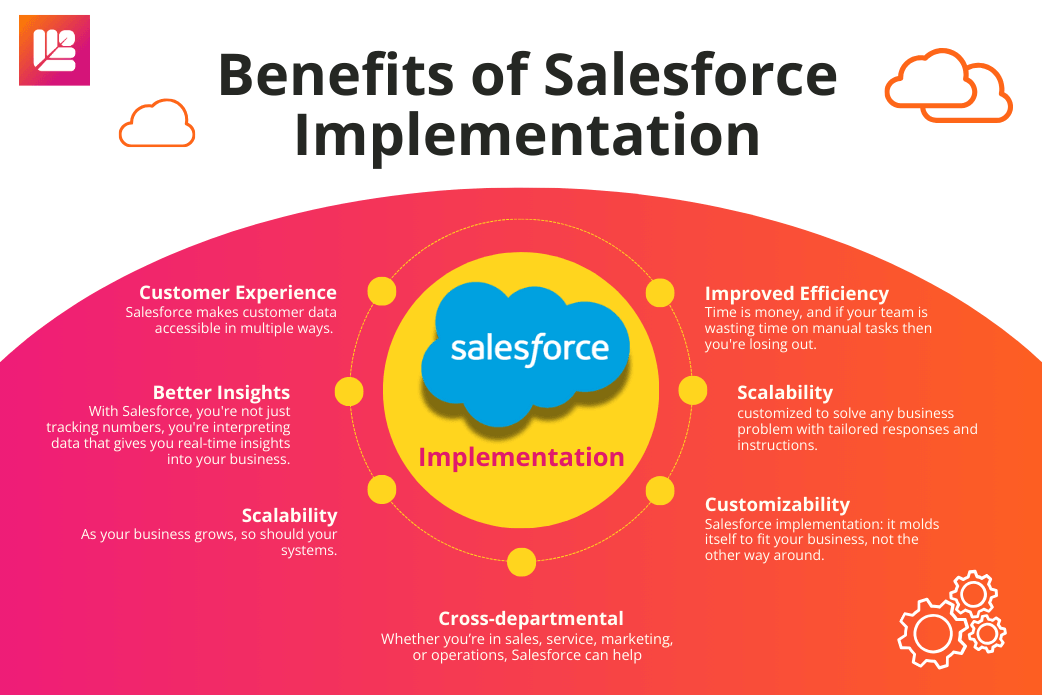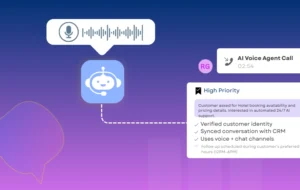If you’ve ever felt the weight of a business that feels too complex to manage, you’re not alone. The modern business world is full of data, systems, and relationships that constantly need attention. And if you’re reading this, you’ve probably heard the word “Salesforce” thrown around. The world of Salesforce can feel like a maze, dense with opportunities, shadows, and obstacles. But once you’re in it, once you get it, there’s no turning back.
Salesforce isn’t just a platform. It’s the heart of your business, the foundation that holds up everything from sales to service. But just like building a house, you need a solid blueprint. Introduced Salesforce implementation—a process that can either make or break your CRM journey.
What is Salesforce Implementation?
Salesforce implementation is the process of taking the raw capabilities of Salesforce’s platform and transforming it into a working system that fits any business. The promise of increased efficiency, better customer insights, and automation is all there, but only if you approach it with a clear roadmap. Salesforce implementation involves customizing the platform to your specific business needs, aligning its features with your existing workflows, and integrating it with your other systems. Done right, it can change the way you do business forever.
Purpose of Salesforce Implementation
The reason you invest in Salesforce in the first place is to make your business run more smoothly. Whether you’re in sales, service, marketing, or operations, Salesforce can help. But to get there, you need to understand the purpose behind implementing the platform.
In the simplest terms, Salesforce implementation is designed to make sure your team can work more efficiently. It’s about taking all the parts of your business, such as customer interactions, service requests, marketing campaigns, and data analysis, and aligning them into one cohesive machine. Salesforce does the hard work of managing, analyzing, and automating processes, so you and your team can focus on the strategic, human side of things. To achieve this seamlessly, it’s important to hire a Salesforce implementation company that can tailor the platform to your specific business needs.
Here’s the thing: getting the implementation right means more than just checking a box. Each department has its own set of needs. You can’t apply a generic solution across the board and expect it to work.
Benefits of Salesforce Implementation
When you implement Salesforce correctly, you’re discovering a treasure of benefits. But like anything worth having, you’ve got to earn it. Let’s dive into why it’s worth the time, money, and effort.

Customer Experience: Salesforce makes customer data accessible in multiple ways. You won’t have to dig through a mountain of spreadsheets or hunt through emails. With the right Salesforce setup, you’ll have a 360-degree view of your customers, their behavior, preferences, and needs.
Improved Efficiency: Time is money, and if your team is wasting time on manual tasks such as chasing leads, updating records, and setting reminders then you’re losing out. Salesforce automates many of these processes, freeing up your team to focus on the tasks that matter. Automation means fewer errors, less redundancies, and faster response times.
Better Insights: With Salesforce, you’re not just tracking numbers, you’re interpreting data that gives you real-time insights into your business. Reports are delivered to your dashboard as soon as you need them, and you can analyze trends to make proactive decisions. It’s about moving from reactive to predictive, helping you make smarter business choices before they become urgent.
Scalability: As your business grows, so should your systems. Salesforce doesn’t just help you manage a small team or a handful of clients—it’s built to scale with you. Whether you’re expanding into new markets, adding more employees, increasing your service offerings, or leveraging Salesforce CPQ Implementation Services to streamline complex pricing and quoting, Salesforce will grow alongside you. And you won’t have to start over each time.
Customizability: Every business is unique. That’s why Salesforce gives you the flexibility to customize everything from workflows to dashboards to reports. This is one of the most powerful aspects of Salesforce implementation: it molds itself to fit your business, not the other way around.
10 Types of Salesforce Implementation Services in the Market
Salesforce isn’t just a single product. It’s an ecosystem of services, each designed to address different needs. So, when it comes to Salesforce implementation, the type of service you need will depend on your goals. Let’s break it down.
Sales Cloud Implementation
The Sales Cloud is the backbone of your sales process. It brings together leads, accounts, opportunities, and everything else in one easy-to-use platform. With Salesforce Sales Cloud Implementation, your team can manage their pipeline, track customer interactions, and close deals faster.
Service Cloud Implementation
For businesses in service industries, Service Cloud is where the magic happens. It lets you manage cases, deliver customer support, and provide solutions all within a single platform. It’s designed to improve response times and customer satisfaction, making sure your team can resolve issues swiftly.
Marketing Cloud Implementation
If you want to engage your customers on a deeper level, Marketing Cloud is your go-to. It allows you to design and execute personalized marketing campaigns across multiple channels. With this implementation, you’ll be able to track customer behavior, segment your audience, and deliver the right message at the right time.
Experience Cloud Implementation
Sometimes, businesses need a space for collaboration both internally and externally. Community Cloud creates a virtual space for employees, customers, and partners to engage, share ideas, and solve problems together.
Commerce Cloud Implementation
For e-commerce businesses, Salesforce’s Commerce Cloud is a game-changer. It integrates with your website, inventory management system, and order fulfillment processes, creating a smooth and scalable online shopping experience.
Einstein Analytics Implementation
Data is more than just numbers. With Einstein Analytics, Salesforce uses AI to analyze your data and predict trends. This implementation helps you get actionable insights that guide your strategy and decision-making.
Nonprofit Cloud Implementation
Nonprofits need a different set of tools to track donations, manage volunteers, and engage with supporters. Nonprofit Cloud is built to help organizations maximize their impact by managing donor management and fundraising efforts.
Health Cloud Implementation
Healthcare providers benefit from Health Cloud, which helps manage patient information, care plans, and appointments. It’s designed to improve patient outcomes by centralizing all healthcare-related data in one place.
Financial Services Cloud Implementation
Financial institutions need systems that can track customer portfolios, provide compliance, and provide personalized services. Financial Services Cloud is customized to the needs of banks, insurance firms, and wealth management
Salesforce Integration Services
Your Salesforce implementation doesn’t work in a vacuum. It must connect with your other business systems ERP, marketing tools, and customer service platforms. Integration services help create a whole experience across all your business touchpoints.
Choosing the right Salesforce Implementation Partner
Choosing the right partner for Salesforce implementation is crucial. You need a team that understands your business’s intricacies, goals, and the Salesforce ecosystem. This isn’t a one-size-fits-all situation. So, how do you know you’re making the right choice?
1. Experience: Salesforce implementation is a complicated process. You need a partner who’s been through it before, preferably with experience in your industry. Look for case studies, testimonials, and a solid track record of successful Salesforce implementations.
2. Customization: Every business is different. Your implementation partner should understand how to make Salesforce fit your specific needs. Make sure they can provide you with a customized approach, not a generic solution.
3. Support: Implementation doesn’t end when the platform goes live. Ongoing support is critical to ensuring your system runs smoothly. A good partner should provide training, troubleshooting, and regular updates.
4. Collaboration: Salesforce is a powerful tool, but it only works when you’re all on the same page. Your partner should collaborate with you at every step, making sure you’re fully aligned with the vision and goals of your Salesforce Implementation.
Wrapping Up
When done right, Salesforce implementation is more than just a tool, it’s a transformation. It’s about aligning your business processes with the platform, automating manual tasks, and gaining deeper insights into your customer relationships. It’s a shift in how you do business, how you make decisions, and how you grow. But none of this happens by accident. With the right planning, the right Salesforce Partner, and the right strategy, Salesforce can be the key to experiencing great business success.
If you’re ready to take your business to the next level, start by choosing the right Salesforce implementation partner. Reach out to Melonleaf Consulting and let us guide you to the success you’ve been waiting for.












